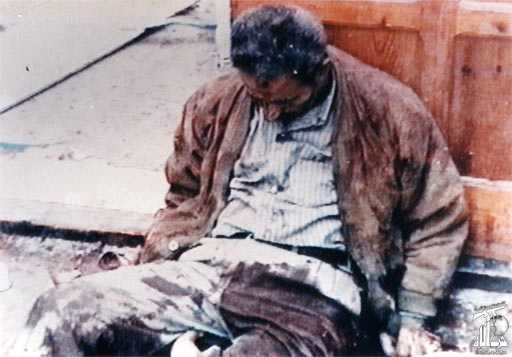
چالش ها و مشکلات مردم افغانستان
بروز رسانی تازه ترین اطلاعات و خبرهای افغانستان و منطقه
چالش ها و مشکلات مردم افغانستان
بروز رسانی تازه ترین اطلاعات و خبرهای افغانستان و منطقهقهر خدا بیاد سری این اسراییل
|
| ||||
|
The second Qana massacre | ||||
|
7/30/2006 7:00:00 PM GMT | ||||
With appalling numbers of civilians killed everyday in Lebanon by Israeli Occupation Forces, analysts fear that Qana might witness a third sad event In April 1996, Israeli forces fired 36 rounds of proximity fused artillery into the United Nations Interim Forces in Lebanon (UNIFIL) Headquarters and its immediate vicinity in Qana where more than 500 civilians were taking refugee after they have fled their homes to escape Israeli bombardment of their villages in southern Lebanon The massacre left 106 civilians, more than half of them children, killed, and more than 100 wounded But that’s not all
10 years have passed since Qana first massacre and no action had been taken against Israel over the deadly incident As predicted, Israel returned to South Lebanon again to carry out more horrific massacres and commit more violations of international laws, destroying as much buildings as it can and killing as much civilians as it can, believing that by inflicting a severe damage to the country’s infrastructure and massacring scores of civilians it’s exerting pressure on the Lebanese resistance movement Hezbollah, hoping it would force it turn in soldiers it holds and retreat from the battle field Today, Qana, the site of the infamous massacre of refugees in 1996, witnessed a second not less appalling crime, and also carried out by the Israelis
The State Department said at the time, "Hezbollah using civilians as cover. That's a despicable thing to do, an evil thing." Shimon Peres said: "They used them as a shield, they used the UN as a shield — the UN admitted it." Same rhetoric is being used today But the Israeli army added another claim, saying that Hezbollah’s “relentless rocket attacks” from the area is what forced the occupation forces carry out their barbaric attack that only killed civilians, mostly children
It seems that bombing whole villages without specific military objectives and without regard for civilian casualties has become Israel’s new tool of pressure and way to “defend itself” as the American President George W. Bush has described it | ||||




























 UNIFIL revealed that the merciless Israeli army had been repeatedly warned by telephone that it was shelling civilians
UNIFIL revealed that the merciless Israeli army had been repeatedly warned by telephone that it was shelling civilians  Fifty sleeping residents of the village of Qana were killed today by the Israeli bombardment of the same site that witnessed its first genocide against the Lebanese population
Fifty sleeping residents of the village of Qana were killed today by the Israeli bombardment of the same site that witnessed its first genocide against the Lebanese population As a matter of fact, Israelis have repeatedly attacked Qana recently, not least by shelling Red Cross ambulances, according to an editorial published today on Uruknet Info
As a matter of fact, Israelis have repeatedly attacked Qana recently, not least by shelling Red Cross ambulances, according to an editorial published today on Uruknet Info